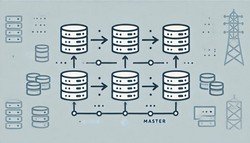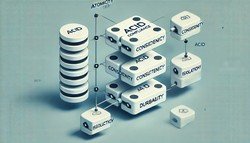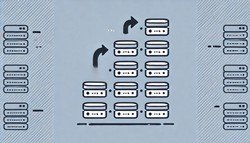Data Deduplication
 (Representational Image | Source: Dall-E)
(Representational Image | Source: Dall-E)
Quick Navigation:
- Data Deduplication Definition
- Data Deduplication Explained Easy
- Data Deduplication Origin
- Data Deduplication Etymology
- Data Deduplication Usage Trends
- Data Deduplication Usage
- Data Deduplication Examples in Context
- Data Deduplication FAQ
- Data Deduplication Related Words
Data Deduplication Definition
Data deduplication is a data compression technique that eliminates redundant copies of data to optimize storage efficiency. It identifies duplicate data segments and replaces them with references to a single stored instance. This process significantly reduces storage space requirements and enhances backup performance.
Data Deduplication Explained Easy
Imagine you have a giant stack of books, but some books appear multiple times. Instead of keeping every copy, you place one copy on a shelf and leave a note in place of the others saying, "This book is on the shelf." Data deduplication does the same with digital files—it removes extra copies and keeps only one.
Data Deduplication Origin
Data deduplication has roots in the early days of computing when storage space was limited and expensive. In the 1990s, enterprises began implementing deduplication strategies in backup and disaster recovery systems.
Data Deduplication Etymology
The term “deduplication” is derived from the prefix "de-", meaning "removal" or "reversal," and "duplication," referring to the act of copying.
Data Deduplication Usage Trends
Data deduplication has gained widespread adoption in cloud storage, enterprise IT infrastructure, and backup systems. The rise of big data analytics and cybersecurity concerns has further driven its adoption.
Data Deduplication Usage
- Formal/Technical Tagging:
- Data Storage
- Backup and Recovery
- Cloud Computing - Typical Collocations:
- "data deduplication technology"
- "reducing storage costs with deduplication"
- "backup deduplication solutions"
- "block-level deduplication"
Data Deduplication Examples in Context
- Cloud service providers use data deduplication to optimize storage efficiency.
- Enterprise IT systems implement deduplication in backup solutions.
- Virtual machines use deduplication techniques to prevent identical files from being stored multiple times.
Data Deduplication FAQ
- What is data deduplication?
Data deduplication is a technique that removes redundant copies of data. - How does data deduplication work?
It identifies duplicate data segments and replaces them with references to a single stored instance. - What are the different types of data deduplication?
File-level, block-level, and byte-level deduplication. - Why is data deduplication important?
It optimizes storage, reduces costs, and improves backup speed. - Is data deduplication the same as data compression?
No, compression encodes data more efficiently, while deduplication removes duplicates.
Data Deduplication Related Words
- Categories/Topics:
- Data Management
- Storage Optimization
- Cloud Computing
Did you know?
Data deduplication played a critical role in reducing the storage footprint of large organizations like Google and Amazon.
Authors | Arjun Vishnu | @ArjunAndVishnu

PicDictionary.com is an online dictionary in pictures. If you have questions or suggestions, please reach out to us on WhatsApp or Twitter.
I am Vishnu. I like AI, Linux, Single Board Computers, and Cloud Computing. I create the web & video content, and I also write for popular websites.
My younger brother, Arjun handles image & video editing. Together, we run a YouTube Channel that's focused on reviewing gadgets and explaining technology.
















Comments (0)
Comments powered by CComment